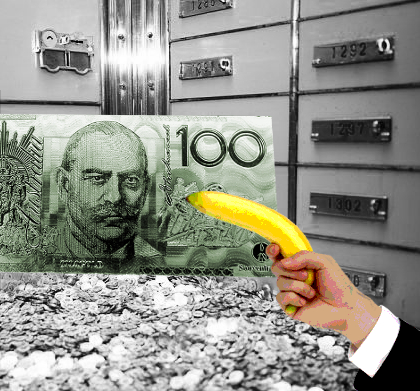Panama leak pours more mud on HSBC

HSBC, the UK’s biggest money-holder, was still reeling from an American investigation that showed it helped move money for everyone from Mexican drug cartels to terrorist organisations when the Panama papers emerged this week.
The leaked documents show HSBC and its affiliates were some of the biggest clients of the dodgy Panamanian law firm, and was behind the creation of more than 2,000 offshore companies for its customers.
But there are even more serious accusations.
The papers suggest that HSBC actively lobbied on behalf of Rami Makhlouf, the billionaire cousin of Syrian President Bashar al-Assad, to keep his Swiss accounts open while the Syrian civil war raged.
A Mossack Fonseca email from a Geneva-based employee in 2011 details a conversation in which the lawyers were told HSBC “are comfortable with” dealing with Mr Makhlouf.
Another email from February 2011 shows a partner at Mossack Fonseca, writing: “From my part - if HSBC Head Quarters in England - do not have an issue with the client, then I think we can also accept him.”
Many in the money sector were left unsurprised by revelations that HSBC is caught up in so many scandals, given that the business has actively played on colonial roots to embed itself in countries and regions where other western financial institutions fear to tread.
HSBC is now in what some have called a “managed retreat”, which includes selling its Panamanian operations for $US2 billion.
It is also evidenced in a new list of Saudi Arabian lenders downgraded by Standard & Poor, which includes the Saudi British Bank - an HSBC company.
HSBC has this week dismissed the revelations in the ‘Panama Papers’ as irrelevant.
“The allegations are historical, in some cases dating back 20 years, predating our significant, well-publicised reforms implemented over the last few years,” says Gareth Hewett, a Hong Kong-based spokesperson for HSBC.








 Print
Print